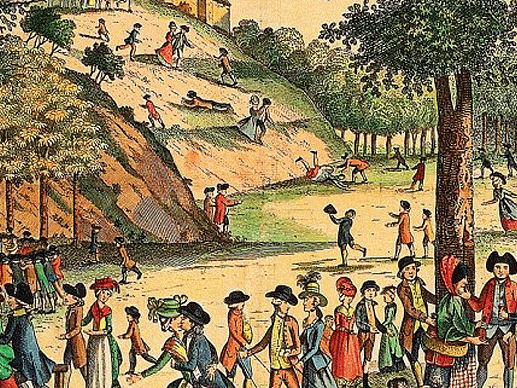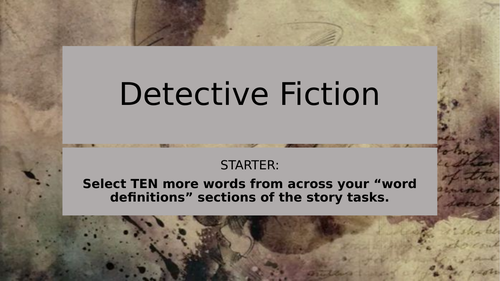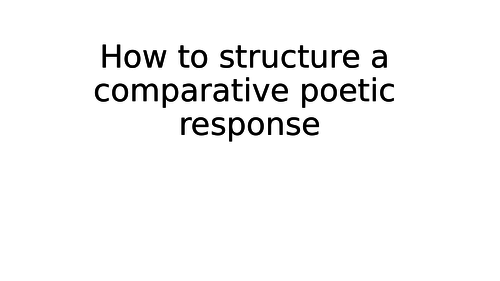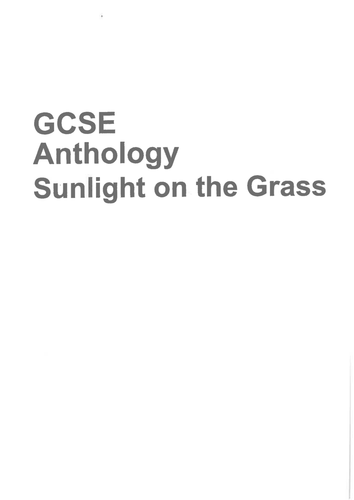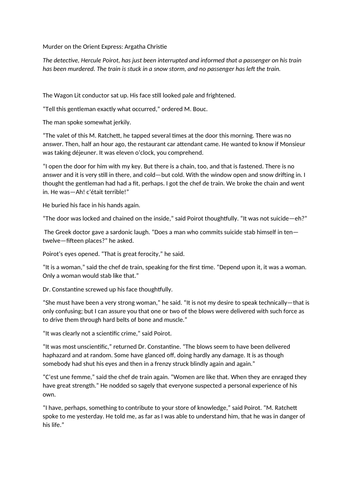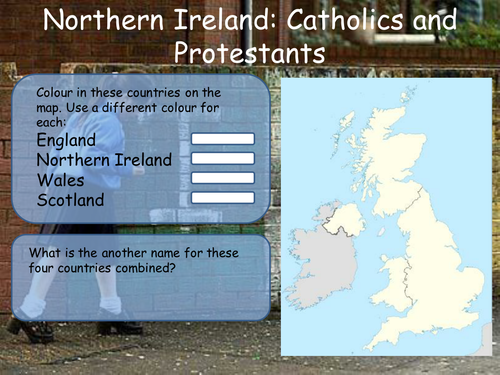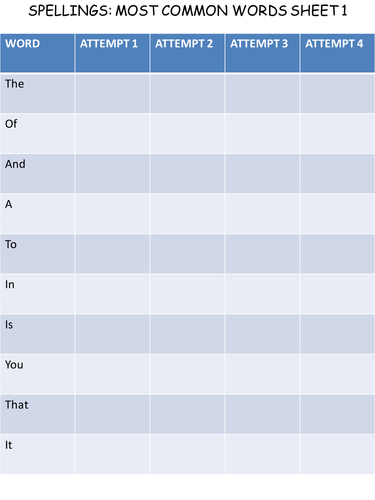
228Uploads
563k+Views
1397k+Downloads
All resources

Debate Boxing
This is quite possibly, the coolest thing I've ever tried out. The premise is as follows: a debate between two students (or teams) where four referees observe. The referees score what they see and a winner is announced at the end.
Now add in entrance music a la pro-wrestlers (think the Rocky Theme, We Will Rock You etc.) and run it on an open evening and I promise you this - you will have EVERY parent in at some point to see what is going on.
I've run this at SIX parents evenings now and the same thing happens every time - all of the kids rock up to watch. I set it last time round where the Deputy Head took on the winner of the students (a year 9 girl). They packed the place out to see who won . The debate topic "Batman vs Superman" (serious stuff this). Needless to say, she wiped the floor with him (in a totally professional way).
You'll need to be the promoter/commentator/ring side referee - this can be exhilarating and exhausting!
Try it.

AQA English Language P2: Glastonbury vs Greenwich
A simple power-point designed to be used either AFTER a class has sat the AQA English Language Paper 2 Specimen Paper 2, or as part of a walking-mock style lesson where the students mark their work immediately afterwards. It’s cheap because I’ve essentially deposited the contents of the mark criteria on to the power point in such a way that the students can use it it to peer or self-assess. The resource JUST contains the power point.

AQA English Language Paper 2 Revision Pack (London 2012 vs The Great Exhibition)
Two powerpoints (both alike in dignity…); the larger of the two covers the deconstruction of an English Language Paper 2 Section A mock exam - we go through common mistakes, areas of concern and identify how to improve on what we’ve done. I’ve provided the sources too, so you could use this as the basis of a Section A walking-talking mock; the smaller powerpoint covers speech writing, an area my lot particularly struggled with.
Happy hunting…
Bundle

AQA -Level English Language and Literature Othello Bundle
All my Othello lessons (so far). I will keep adding to this as I go.

KS3: Exploring the theme of "Journeys" - A Sound of Thunder (Reading SoW)
I had a lot of fun with a bottom set, boy heavy year 9 group with this. They took to the story well and did OK with their reading assessment.
Enjoy and let me know how it goes.

KS3: Detective Fiction - Sherlock Holmes. Workbook included. Reading and Writing SoW.
A thoroughly enjoyable unit of work. Built around a work booklet and designed for that awkward half-term at the end of the year where you don’t want to give out new exercise books.
The workbook contains a copy of The Norwood Builder, comprehension questions and vocabulary list, as well as a variety of activities that focus (primarily) upon creative writing skills with some language and structure based tasks.
The lessons are designed to be used with the workbook.
NOTE: I may upload a slightly different workbook in the future, but I will leave the original on here.

KS3: As You Like It - GCSE Focused SoW
To make effective use of this scheme I suggest you have a copy of the most recent RSC version of As You Like It (It is quite marvelous…) else a lot of the images I use will make little sense.
There are five “lessons” that each last around the two hour mark. Each of the assessments is available, so the whole package is a self-contained unit of work. We had a lot of fun with this unit, and I inter-spaced the learning with periods where the class would act out elements of the play.
You don’t necessarily need a copy of the play to teach this unit either.

KS3: Born a Crime - Structure Focus
A lesson take from a collaborative scheme of work. The lesson focuses on the quite excellent Born A Crime by Trevor Noah. The focus is developing an initial understanding of South Africa, then Trevor Noah himself, before focusing in on the context surrounding the story itself.
After, the focus switches to analysing the structural choices made in the extract.
Additionally, I’ve included a useful little follow up lesson where the focus ins to build a piece of creative writing that follows a specific structural path.

Year 9 Preparation for GCSE Scheme of Work: Writing from around the world
A resource dump for my first attempt at preparing a middle set year 9 class for the rigours of the new GCSE - some success, but the class dynamic was more of a problem than the lesson resources themselves. Some editing may be required, but if you are wondering about how to approach the Section B parts of the exams, this covers a lot of bases.
Bundle

Jekyll and Hyde Bundle
A Jekyll and Hyde scheme of work (designed to be taught over a whole term) and a revision unit (desgined to betaught over a few weeks). Also, I include a spreadsheet that allows you to track the scores of your students.

AQA A-Level English Language and Literature - Introduction to Poetry (Heaney)
My introduction unit for A-Level Language and Literature. It assumes that the academic voices of the students needs sharpening somewhat. I source a lot of stuff from various corners of the net and use it in the power points - pay particular attention to the notes element of the power points by the way. I also include a “model essay” the purpose of which is to get the students to move away from their formulaic essay structures that they have used in their GCSEs.
Think of this as a starting point that may need a little shaping to suit the needs of your class.

AQA A-Level English Language and Literature: Othello - Lesson 4 (The Violence Within)
A thematic exploration of Violence within Othello - focusing specifically on Act 4. Also, the power point starts with a little revision of characters and quotations from across the play. I found this a fun lesson.

Spell Quest - making spelling fun
A summer spent playing word games with my kids lead me to this idea.
The idea is that the students are supplied with a grid of letters. They use these letters to build words which cause damage to a cartoon monster. The bigger the word, the more damage done to the monster.
I’ve made it more and more difficult as the monsters develop - you have to use certain letter types for example.
I plan to give each child one grid per week to complete and have their peers mark it.
So you are completely aware, I have left all of the grids blank apart from on a few. You will need to fill these in yourself. Also, I have left the challenge component blank too. This will allow you to create challenges that reflect the specific types of spellings you are looking at - double damage awarded for homophones for example.
There’s massive scope for differentiation in here too. I’ve included a whole class version of the spelling levels, as well as a photocopy friendly version too.
I have long believed that making school a little more like computer games can be helpful - this is my first attempt at exploring Gamer Theory as I have dubbed it.
Watch this space for more. Have to figure out how to do something similar with the other components of SPAG and Reading now…
ADDITION: I’ve included some completed versions of the pack to give you an idea of what they could look like. Pay attention to the NOTES section of the power points too. These grids have been designed to be used in tandem with the Escape From Kraznir scheme of work.
ADDITION: I’ve also added a new powerpoint that works as a whole class exercise. You don’t need the sheets, just paper and the will to go on…

AQA English Literature Poetry Knowledge Tracker Spreadsheet
A useful little tool. It allows you to RAGB(red, amber, green, blue) your students understanding/annotations of the 15 Power and Conflict poems in the AQA anthology. Also, it provides you with a poem by poem breakdown of your classes understanding/quality of annotations so you can see where the gaps are all the clearer.
The spreadsheet is set up for a class of up to 40, but the coding can easily be altered to allow for a whole year group.

AQA English Language and Literature: Developing Essay Writing Skills for the Heaney section
I used a similar approach with the Paris Anthology section and my class found it to be very useful. The issue they were having focused on incorporating enough AO1 terminology appropriately. This lesson is designed to talk them through an approach to an essay question, starting with the poetic voice, moving on to selecting relevant areas and then placing each level of language as a different starting point before exploring ideas across the language levels. It seemed to work…
Hope others find this useful as a starting point.

Sunlight on the Grass Revision Booklet
I designed this for the old AQA specification. Now that the spec is obsolete, some of you might be thinking of turning those stacks and stacks of anthologies into resources for KS3 classes (we certainly are for year 9). As a result, you may find this booklet useful.
The booklet is essentially a copy of the entire anthology where on the left hand side of a double page spread you have the text, and on the right hand side you have space for notes. Each story is ended with generic questions and has TWO exam questions for revision purposes.
Perfect for planning lessons when you are taking an extended period of time off.
Happy reading.

KS3: Murder on The Orient Express Language Task - Method Focus
Using a format that proved successful in the KS4 arena, I’ve adapted the thinking to apply to an AQA English Language P1 Q2/P2 Q3 style task that would fit for a higher ability top set KS3 class.
The approach is to initially read the extract then to specifically identify concepts that relate to a language focused task, followed be explicitly identifying language based methods and incorporating into a response.

Northern Ireland Conflict
Dyslexic friendly resource aimed at EBD children. An initial foray into the problems occurring in Northern Ireland.

AQA English Literature: Romeo and Juliet Revision Lessons
I pulled together a lot of thinking from a lot of different websites and have shaped it into these lessons. Not all of the content is mine.

Spelling and Understanding top 100 common words
I teach a very low ability year 7 group and they are missing a large amount of spelling and comprehension knowledge of the simplest words. These work sheets are designed to be printed out back to back, taken home and completed. They will allow you to identify which of your students is able to accurately spell and use these first 100 words. VERY useful for EAL students.


